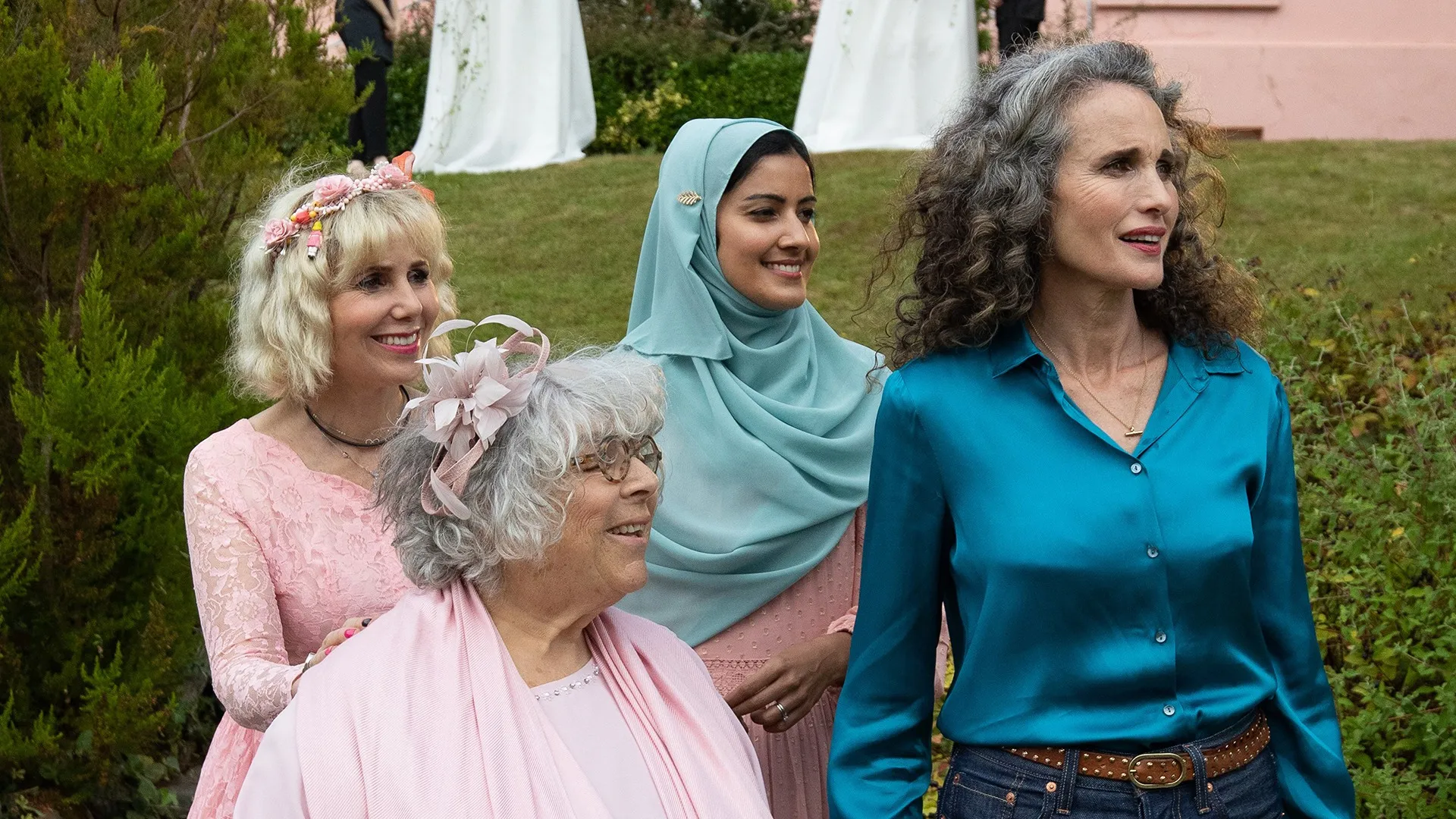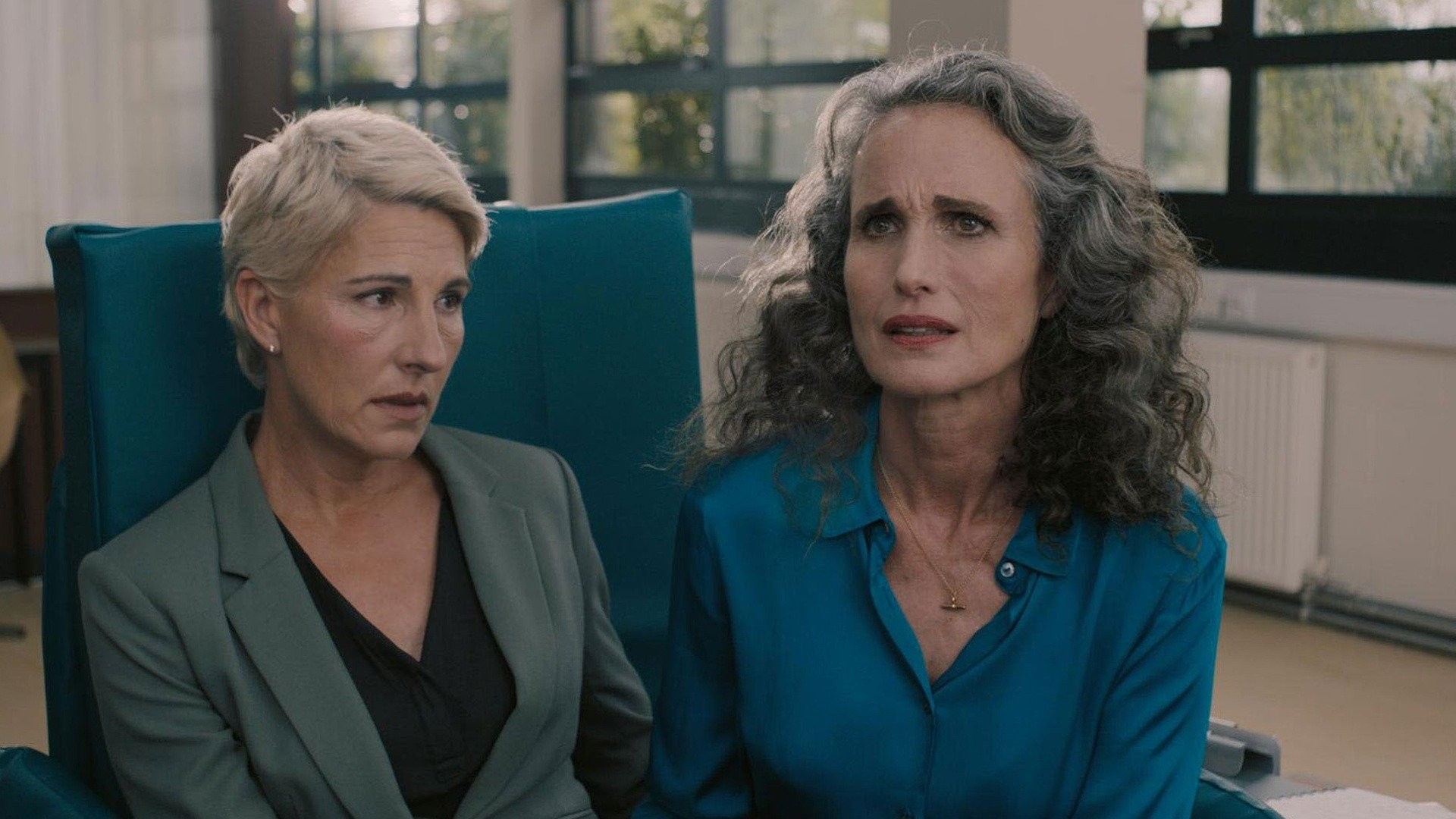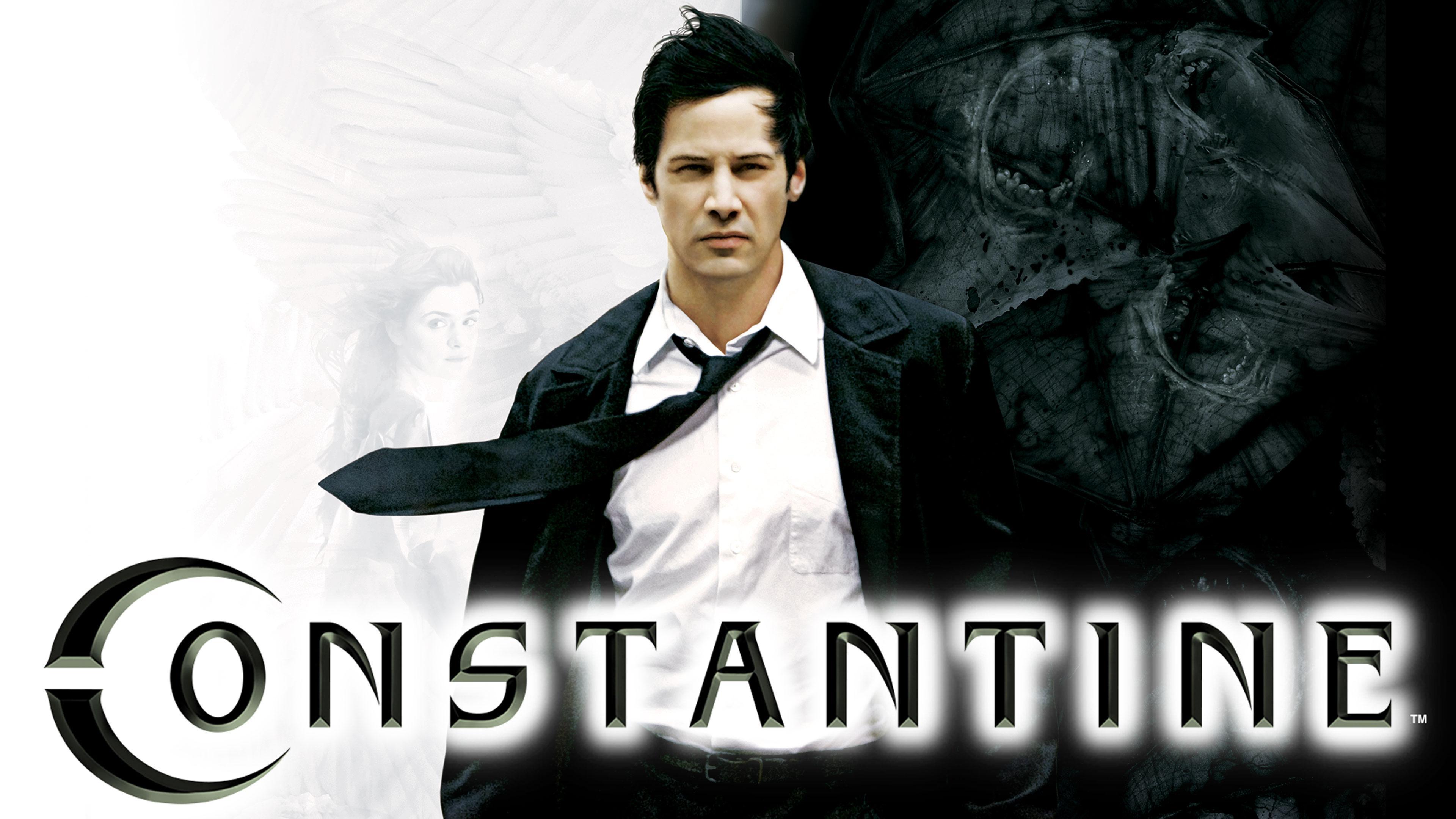A Poignant Tale of Healing, Friendship, and Self-Discovery
My Happy Ending, directed by Sharon Maymon and Tal Granit, is a heartfelt drama that gracefully explores illness, identity, and the unexpected beauty that can be found in life’s most difficult moments. Adapted from the play Sof Tov by Anat Gov, the film stars Andie MacDowell as a once-famous actress whose journey through illness leads her to a profound emotional awakening. With themes of mortality, womanhood, and resilience, My Happy Ending offers a touching and quietly powerful cinematic experience.
The story centers on Julia Roth (Andie MacDowell), an aging Hollywood actress who travels to a small British hospital to undergo chemotherapy while trying to keep her cancer diagnosis private. Hoping for anonymity, she finds herself in a shared treatment room with three other women—each from different walks of life, yet all bound by a common struggle. Initially guarded and detached, Julia slowly begins to open up as she bonds with the women through their shared experiences, humor, fears, and reflections on life. What begins as a routine treatment session turns into an unexpected day of emotional revelation and connection.

Andie MacDowell delivers one of her most emotionally resonant performances in years. She portrays Julia with a perfect balance of vulnerability and strength, capturing the character’s inner conflict—her fear of losing control, her pride as a celebrity, and her deep longing for meaning beyond fame. The ensemble cast, which includes Miriam Margolyes, Sally Phillips, and Rakhee Thakrar, shines as the other women in the treatment room. Their interactions bring warmth, humor, and candidness to the story, turning what could be a bleak scenario into something hopeful and life-affirming.
The film’s strength lies in its ability to humanize illness without reducing it to sentimentality. The conversations between the women are raw, sometimes painfully honest, yet often laced with wit and sarcasm. Through their dialogue, the film addresses not only the physical toll of cancer but also its emotional and existential impact—how it reshapes relationships, identity, and one’s sense of purpose. Despite its heavy subject matter, My Happy Ending avoids becoming overly bleak by focusing on connection and personal growth.

Visually, the film takes place almost entirely in one location—the chemotherapy ward—but it uses the confined space effectively. Through careful cinematography and subtle shifts in lighting and color, the room transforms as the characters' emotional worlds expand. The directors focus on faces, gestures, and silences, drawing the viewer into the intimacy of shared human experience.
Ultimately, My Happy Ending is about the unexpected ways people can find peace, purpose, and even joy in the face of adversity. It challenges the notion of a "happy ending" by suggesting that fulfillment doesn’t always come in grand gestures or external success, but in small, meaningful connections and the courage to face life honestly.
In conclusion, My Happy Ending is a tender, sincere, and life-affirming film that reminds us of the power of empathy and companionship. Through honest storytelling and heartfelt performances, it offers a quietly uplifting meditation on life, loss, and what it truly means to live.

-1751696321-q80.webp)

